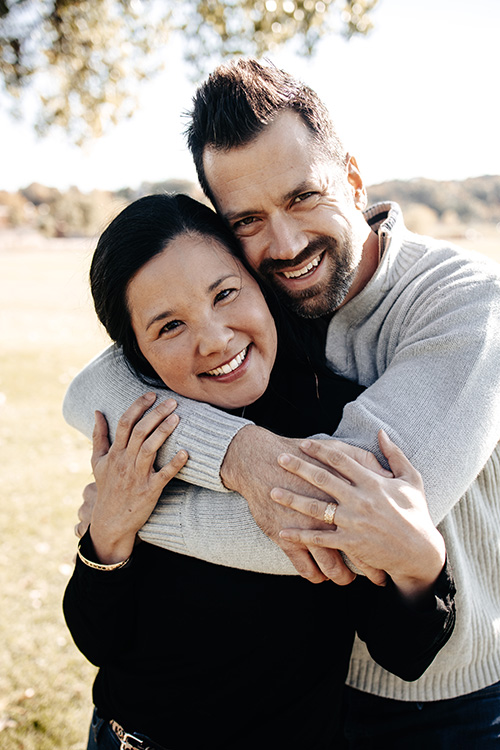Anita Draper
Catholic Herald staff
When Pat and Kenna Millea spoke at a mental health workshop in Rice Lake in 2022, they cited statistics: 96 percent of teens say anxiety and depression are a problem, with 70 percent of them identifying it as a major issue.
The couple, founders of the Twin Cities-based Martin Center for Integration, offer a Catholic, pastoral perspective on promoting and maintaining mental wellness for both adults and children. They, along with Martin Center trainer Ashley Cermack, will be featured speakers at the Diocese of Superior’s 61st annual Fall Conference on Friday, Oct. 27, at St. Joseph in Rice Lake.
Learning about faith- and science-based methods to understand and confront mental health issues – a priority among diocesan education leaders, particularly following the COVID-19 pandemic – is the mission for this year’s conference, which draws teachers, clergy, catechists and parish leaders who work with struggling adults and children of all ages.
“This theme is something we’ve been talking about and working through for a few years now,” Diocese of Superior Superintendent of Schools Peggy Schoenfuss commented.
Post-COVID, societal mental health has declined, she said. In schools, student behaviors have worsened and expectations have changed, and educators today do not always have the practical experience to deal with those behaviors.
Schoenfuss attributes the change to a number of factors; one is that children have a great deal of access to technology and social media, and she is also concerned about potential complications arising from artificial intelligence. She sees students who struggle with too much structured time and too many activities, and not enough time to “just be.”
“A lot of it is breakdown of family time, time for kids to be kids,” she added.
She believes another contributing factor is that children are not given rules or emotional parameters.
“As adults, we give kids too many options,” she said. Children’s brains, which do not reach maturity until age 25, are not developed well enough to make decisions in complex situations, which leads to anxiety. Essentially, she explained, they need to know what they can and cannot do.
The Fall Conference is an important annual event for connecting educators and administrators across the diocese’s 14 Catholic schools. Schools’ roles have changed in recent years, and Schoenfuss sees the need to discuss the complementary relationship between parents and educators.
“We need to really think about, ‘What is the partnership between the school and the family?”’ she said. She feels it’s become a contest to see who’s in charge, but the question should be, “What can we do to work together?”
Overall, Schoenfuss observed, stress is a chronic problem. Everyone is stretched – families are stretched, schools are stretched. As a society, “we need to figure out how to be less stressed,” she said. “Unfortunately it’s the kids that suffer …. Children don’t know how to talk to each other, let alone talk to someone else, when they are feeling sad.”
Of all of these difficulties, she said, “We knew it was coming for the last 20 years, but COVID sped everything up. It’s getting harder and harder to handle behaviors and emotions, for both kids and adults.”
The agenda of the 8 a.m. to 4 p.m. conference begins with Mass with Bishop James P. Powers and continues with morning and afternoon addresses.
Finding enough instructors to hold breakout sessions – the afternoon format for many years – has become too challenging and cost-prohibitive, Schoenfuss said, so the new format will likely be the norm moving forward. She also likes the unity of having all attendees listen to the same talks.
The Milleas – Kenna is a licensed marriage and family therapist, and Pat has a background in parish ministry and a master’s degree in theology – will “be guiding us in understanding this challenging reality and equipping us to address these struggles from the frontlines of our classrooms and churches” while they “address the intersection of mental health and faith.”
Schoenfuss said it is “really obvious” that some families do not have a relationship with God, and part of the conversation will focus on how to bring in faith.
“We’re trying to achieve a sense of peace,” she added.
While Schoenfuss acknowledges a one-day event will not resolve long-term struggles with mental health, “hopefully it’ll help. …We’re excited for this year’s topic, just hoping it gives encouragement and support.”
Cost to attend the conference, sponsored this year by the educational materials company Catholic Brain, is $60, including lunch. Questions can be directed to 715-234-5044 or .

Pat and Kenna Millea
